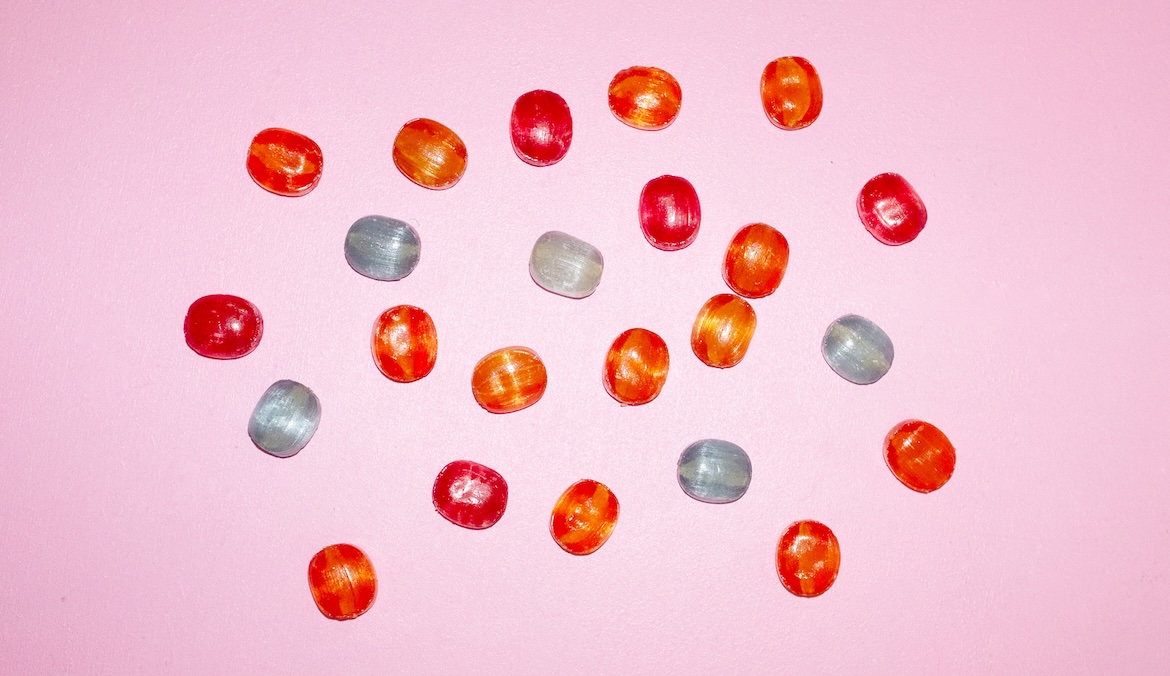Imagine this. You are at the drug store. I have a sore throat due to a cold, and I’m looking for something to relieve it quickly. Now is the perfect time to look for the best cough drops for sore throats. As I walked through the cold and flu aisle at the store, I noticed that there were a lot of different cough drop brands and flavors. How do you know which one is best for your symptoms?
“Cough suppressants can help relieve coughs from upper respiratory infections,” Dr. Carlos Galindo, a family physician at Texas Health Presbyterian Hospital Plano and Texas Health Physicians Group, told Well+Good. But in general, it doesn’t really matter which brand you choose. All brands get the job done the same way. Most lozenges (the fancy word for cough drops on product labels) contain active ingredients like menthol or eucalyptus oil that temporarily soothe or numb the throat. Additionally, the extra saliva produced by sucking on cough drops also moisturizes the tissues in your throat. Eventually, you may feel less like coughing and your throat may feel a little better.
“There is no one (cough drop) that is better than the other. It’s all based on preference and taste,” says Dr. Galindo. That said, if you want a quick guide to some of the most popular options, here are five of the best options that will get you results.
Best cough medicine for sore throat
Our experts say these five picks contain soothing ingredients that can provide some much-needed relief.
Ricola Sugar-Free Swiss Herbal Cough Drops — $7.99
Main ingredient: menthol
Throat-soothing herbs such as mallow and thyme, combined with menthol, a cooling compound found in mint, “help soothe nerves in the mouth and reduce pain and inflammation. ” says Dr. Galindo. These lozenges are sweetened with stevia and are effective for diabetics, but the herbal taste can be bitter and unpleasant for others. It all depends on personal preference.


Ruden’s Sore Throat Medicine — $4.31
Main ingredient: pectin
Unbearable dry throat? These cherry-flavored cough drops can help. They contain an ingredient called pectin, an oral demulcent that coats the membranes of your throat to soothe dryness and irritation, Emel points out.


Honeys Honey Menthol Eucalyptus Drops — $2.53
Main ingredients: menthol, eucalyptus, honey
These cough drops contain cooling menthol and eucalyptus on the outside and are packed with honey on the inside. “There are some medical studies that have shown that honey may reduce cough frequency and cough severity,” says Dr. Galindo.


Cold-Eeze Soft Center Liquid Honey Zinc Lozenges — $12.49
Main ingredient: Zinc gluconate
These are cough drops that moisturize your dry, irritated throat and may help you feel better quickly. “The American Academy of Family Physicians notes that zinc lozenges can help reduce cough severity and cough duration,” says Dr. Galindo. It cannot completely cure a cold, but it may help get rid of a cough faster.
Are there any risks or side effects to cough drops?
It’s generally okay to take cough medicine for a few days when you’re feeling sick. However, certain cough drop ingredients can do more harm than good if taken in excess. “If you’re trying to relieve symptoms or reduce symptoms with cough drops, moderation is generally a good option,” Dr. Galindo says.
For example, menthol lozenges can actually make coughs worse if taken in excess, an observational study published in March-April 2018 in the Journal of the American Board of Family Medicine found. . It can also irritate the stomach, Dr. Galindo notes. It’s difficult to say exactly how many uses of cough drops will cause a problem because different products have different amounts of menthol. Therefore, we recommend that you consider talking to your doctor if you have concerns.
Are there other potential side effects? If you have diabetes or are trying to prevent high blood sugar levels, your cough drops may contain more sugar (or honey). Large amounts of sugar can also upset your stomach and cause loose or watery stools, Dr. Galindo points out.
Finally, according to the American Academy of Pediatrics, cough drops (or any lozenges or hard candy, for that matter) can be a choking hazard for children under 6 years old. Therefore, instead of giving your child cough medicine, ask your pediatrician for other cough medicine recommendations.
When to see a doctor for a sore throat
If your sore throat is only present for a few days (unaccompanied by serious symptoms such as fever, vomiting, or body aches), you’ll probably want some rest, soup, and, of course, cough drops. However, if your sore throat persists or is accompanied by other concerning symptoms, you should contact your doctor. “If an upper respiratory tract infection persists for more than 10 days, symptoms worsen, or a sudden onset of fever occurs, patients should see a health care provider,” advises Dr. Galindo.
Keep in mind that while coughs and sore throats are usually caused by upper respiratory infections, these problems can also be caused by chronic conditions such as asthma, acid reflux disease, and chronic obstructive pulmonary disease (COPD). There are cases. Your doctor will also want to rule out these underlying concerns during your examination.
Well+Good articles reference scientific, reliable, up-to-date, and robust research to support the information we share. Trust us with your health journey.
Johnson, Danica et al. “Menthol Cough Drops: A Cause for Concern?” Journal of the American Academy of Family Physicians: JABFM vol. 31,2 (2018): 183-191. doi:10.3122/jabfm.2018.02.170363
These products are independently selected by our editors. When you buy through our links, Well+Good may earn a commission.

